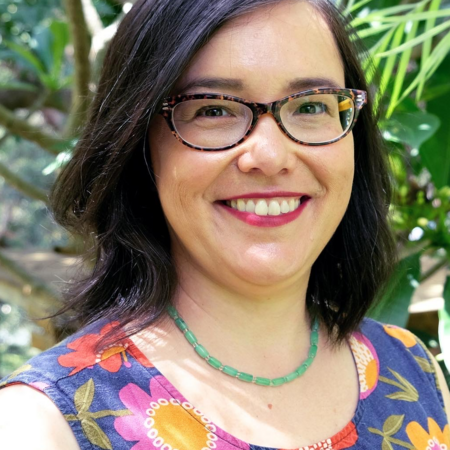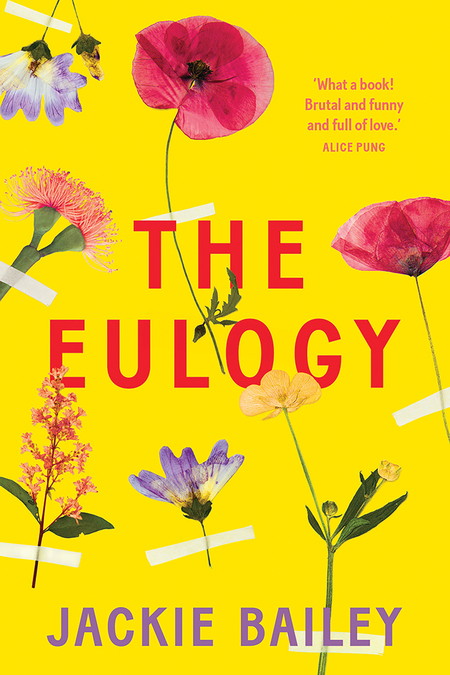There is a curious time in everyone’s lives, in the immediate, disorienting aftermath of the death of a loved one, when time seems to stop but also go into a mad overdrive, mixing together the past and the present in an blender-frenzied attempt to make sense of a loss so big and vast that navigating your way around it begins to feel all but impossible.
It’s an avalanche of emotions tipped onto your head and through your heart in an instant and as you dig your way out, or try to because who knows which way is up and which is down in a landscape of grief you’ve never visited before – no matter how many times you experience this type of loss, it’s always different and unknown because the person you are mourning is not the same – everything about that person, your life with them and the wider emotional context you lived and loved in comes into vividly arresting play.
It is this whirlwind of intimacy broken in two that Jackie Bailey navigates in The Eulogy which, as the title suggests, takes place in that emotionally nothing and yet everything time between death and burial when a lot is happening but time stands ingloriously and weirdly still.
For all the enervation at work here, many things are brought into sharp relief, something that Kathy Bradley encounters with powerful force as she tries to pen a remembrance of her three-years-older sister Annie who, twenty-five years after a diagnosis of brain cancer, has finally died from the malignancy within.
“I covertly watched how he moves, how he talks, how he breathes so easily inside his own skin. Evan takes up his allotted space on the footpath, in this city, in this country: no more, but no less, and without apology. I have never done that. I have spent my life apologising for the discomfort I cause to others for being neither one thing nor the other; for being in their way; for being what I am.” (P. 49)
Already nursing an immediate palpable grief of her own, and refusing to take calls from her loving husband Evan, a fellow Chinese-Australian she met at work who loves with an uncomplicated unconditionality that she never really encountered in her family (or not as much as she needed to), Kathy has made up her mind that things need to change, but with 300 crushed sleeping tablets in the glove box of her car, it’s increasingly clear she means to join Annie as soon as she honours her at her burial.
That is a lot to handle and navigate on its own, but throw in five other older siblings – she and Annie were the accidents of a family begun many years before by a Australian soldier stationed in Malaysia and a Chinese-Malaysian woman looking to escape an untenable future – who barely connect, though in their own way they are functionally close, a family history littered with emotional and physical abuse from a mother who didn’t know how to express love properly and a sense that she’s stumbling through life, and you have an exploration of grief and loss that is so moving and powerful, that it consumes in the way only the very best stories can.
Labelled as autofiction novel, which means “a genre of literature that combines elements of autobiography and fiction”, The Eulogy deftly and empathetically, and with a surprising amount of humour, examines what happens when a family long held in the grip of simmering grief, finds itself embroiled in the searing intensity of the kind engendered by sudden, though also not so sudden, loss.

At the heart of this book, which takes as a given that even under great duress, we are there for family and they are for us, often imperfectly but there nonetheless, is the big question of what it means to truly live when so much of life seems like a crapshoot of accidental happenings.
What if Kathy’s father hadn’t been stationed at Butterworth in Malaysia and what if he hadn’t gone to the club where her mother worked? What if Kathy hadn’t moved to Sydney impetuously, too tired to be Annie’s guardian any longer? And what if she hadn’t gone to the park that day?
What would have been different? Anything? Everything?
Kathy, lost in a grief that has enveloped like a billowing shroud with no end, can’t tell, but she knows that she can’t live any longer in a world where love feels uncertain or half-done or predicated on threat and cruelty; she has seen in Evan, Evan and Annie what it is like to be loved unconditionally but even so, she isn’t sure how that can find form in the rest of her life, which filled with bottomless grief and loss in a sharp, taut period of time, seems to have no room for love and happiness anymore.
She is at a crossroads and as she goes through Annie’s diaries, and spends time with her siblings, and we are given insight into the varied heartbeats of her family’s present and its barely held together present, The Eulogy takes us in to her pain and loss and the limbo, laced with misplaced certainty of where to go next, that it has plunged her into.
“A genuine laugh breaks Trish’s face out of its usual set lines of responsibility. ‘Yes, Di-aaana,’ she repeats. ‘By the way,’ she adds, jingling her car keys. ‘Evan called me. He didn’t seem to know that Annie had died.’
‘I wanted to process it myself first,’ I reply. ‘I wanted it to be just me and Annie for a little longer.’ I would not be much of a Bradley if I could not lie at a time like this. Trish is too preoccupied with whatever crisis is not unfolding at the hospital to question me any further. It’s always been this way with our siblings – surface-level concern, followed by a grateful retreat to the safety of their own vacuum-sealed lives.” (P. 211)
Bailey writes with such a light, perfectly-executed touch that you almost don’t notice, until you searingly do, how deeply she isn’t reaching into our collective experience of grief, loss, love and pain.
They all mingle in the messy depths of the human condition, and never more so than in the aftermath of death where all our illusory sense of life having meaning, purpose and order – it often does, just not in the way we imagine – come crashing down around us.
Or, if they don’t, they come under severe and unyielding questioning of the sort that leaves us breathless and clinging to any insights we can glean from our beleaguered past and our broken into small pieces present.
The Eulogy tackles this state of mind and being, and the grief-shaped landscape against which it takes place with such a rich, bighearted understanding and care that you find yourself back to those times when you were navigating the world of loss and pain and asking yourself where to next?
It’s a challenging conversation with self and others, and a tough time filled with overwhelming emotion in which answers seem scant and questions are many, but in the end, as The Eulogy observes under Bailey’s masterfully insightful hand, there is a way through, even if the place you arrive at may not bear any resemblance to where you came from or where you thought you’d end up.
